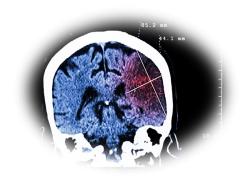© 2025 MJH Life Sciences™ , Patient Care Online – Primary Care News and Clinical Resources. All rights reserved.
Post-MI Psychological Distress: Contributing Factor To and Consequence of Cardiovascular Disease
Managing post–MI distress is no longer optional—it’s essential to comprehensive cardiac recovery, according to a new AHA statement.
Post-myocardial psychological distress (PMPD) is not merely a consequence of heart attack but a critical factor directly influencing prognosis and future cardiac events, according to a recent American Heart Association scientific statement.
The comprehensive review of the mind-heart connection published in Circulation explains that while fear, sadness, and frustration are normal responses to a major cardiac event, PMPD involves persistent symptoms that cause significant distress or functional impairment. The syndrome encompasses depression, anxiety, psychosocial stress, and posttraumatic stress disorder (PTSD).
Prevalence and Risk Factors
The burden of PMPD is substantial. Up to 50% of post-MI patients experience some form of psychological distress, with specific prevalence rates including:
- Depression: Up to one-third of patients
- Anxiety: 20-50% during hospitalization, 20-30% in subsequent months
- PTSD: 4-21% of patients
The statement identifies multiple risk factors that create vulnerability: younger age, female sex, underrepresented races and ethnicities, lower educational attainment, living alone, perceived lack of social support, unmarried status, unemployment, psychiatric history, unhealthy lifestyle, immigration status, and history of cardiovascular, metabolic, or respiratory complications.
Clinical Consequences
The evidence linking PMPD to adverse outcomes is robust. Depression after MI doubles the risk of recurrent cardiovascular events and mortality—a finding so compelling that a 2014 AHA statement elevated depression to a formal risk factor for poor prognosis in acute coronary syndrome.
While evidence for anxiety is more mixed, meta-analysis of over 5,700 post-MI patients found odds ratios of 1.71 for new cardiac events and 1.36 for combined endpoints of cardiac events and mortality. Chronic stress is associated with 40-60% increased risk for future adverse cardiac events. PTSD symptoms directly attributable to MI double the risk of recurrent events or mortality (RR 2.00; 95% CI 1.69-2.37).
Beyond prognosis, PMPD consistently correlates with diminished quality of life.
Understanding the Mechanisms
The statement describes a bidirectional relationship between MI and psychological distress, creating a vicious cycle.
How MI Induces Psychological Distress:
Ischemic injury triggers proinflammatory cytokines that influence the brain via the hypothalamic-pituitary-adrenal axis and autonomic nervous system, producing depressive-like "sickness behavior" and the excessive arousal seen in anxiety and PTSD. These inflammatory processes may also reduce serotonin levels. Psychologically, MI functions as both trauma (potentially causing PTSD) and a conditioning event where patients associate physical activity or cardiac sensations with fear, promoting avoidance behaviors and social isolation.
How Psychological Distress Increases Cardiac Risk:
Once established, PMPD perpetuates risk through behavioral and biological mechanisms. Behaviorally, affected patients demonstrate reduced physical activity, continued smoking, poor diet and sleep, excess alcohol consumption, decreased medication adherence, and poor cardiac rehabilitation attendance.
Biologically, psychological distress alters autonomic nervous system activity (reducing heart rate variability), elevates catecholamines, increases platelet reactivity, and promotes endothelial dysfunction and coronary vasoconstriction under stress.
Recognition and Treatment
While systematic screening of all post-MI patients remains debated, the statement emphasizes the value of clinical vigilance. Key signs include sad mood or hopelessness (depression), excessive worry or irritability (anxiety), and nightmares or intrusive thoughts about the cardiac event (PTSD).
For those favoring structured screening, the statement notes validated brief tools including the 4-item Patient Health Questionnaire (PHQ-4) combining depression and anxiety questions, and the 5-item Primary Care PTSD Screen (PC-PTSD-5).
Treatment Options:
The statement authors highlight several evidence-based approaches:
- Pharmacotherapy: Selective serotonin reuptake inhibitors (SSRIs), particularly sertraline, have proven safe, well-tolerated, and effective for mood symptoms in cardiac patients. Bupropion and mirtazapine represent additional safe options.
- Psychological Treatments: Cognitive Behavioral Therapy demonstrates benefit for mood and anxiety symptoms in cardiovascular disease, as does mindfulness-based stress reduction.
- Cardiac Rehabilitation: The statement frames this as a cornerstone intervention providing a comprehensive platform for addressing both physical and mental health. Cardiac rehabilitation reduces symptoms of depression, anxiety, and stress. Given that most post-MI patients don't attend cardiac rehabilitation, the authors suggest that endorsement and referral represents significant opportunity to improve both psychological well-being and cardiac prognosis.
The American Heart Association, American College of Cardiology, and European Society of Cardiology now formally recommend assessing and managing psychological health following acute coronary syndrome. This consensus reflects compelling evidence that PMPD is common, consequential, and treatable.
The AHA statement articulates a fundamental principle: "Regardless of whether interventions reduce future cardiovascular events, it behooves health care professionals to remind ourselves that we should not be hyperfocused on treating just cardiac disease but focused on treating the patient as a whole person." This philosophy represents both the evolution of cardiovascular care and our fundamental professional commitment.
Levine GN, Carney RM, Cohen BE, et al. Post–Myocardial Infarction Psychological Distress: A Scientific Statement From the American Heart Association. Circulation. Published online September 22, 2025. https://doi.org/10.1161/CIR.0000000000001381



